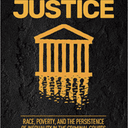
A new book by David Garland, “Peculiar Institution: America’s Death Penalty in an Age of Abolition,” offers a fresh perspective on why the death penalty endures in the United States when so many other countries in the Western world have already abolished it. The book seeks to understand the persistence of the death penalty in the U.S. as a social fact, using sociological, historical and legal analyses to explain the unique and peculiar manner in which the death penalty is applied. Garland concludes that the death penalty has survived in the United States because it is deeply connected to the fundamentally American institutions of local autonomy and popular democracy. Anthony Amsterdam, Professor of Law at New York University, said of this book, “This is indispensable reading for students of criminal justice, race, and American culture, for lawyers and judges in the pathways of death, and for all who want to understand why our country can neither put capital punishment to any good use nor put an end to it.”
David Garland is Arthur T. Vandebilt Professor of Law and Professor of Sociology at New York University. He has also written “The Culture of Control” (2002) and “Punishment and Modern Society” (1990). (D. Garland, “Peculiar Institution: America’s Death Penalty in an Age of Abolition,” October 1, 2010, Harvard University Press). Read more Books on the death penalty.



